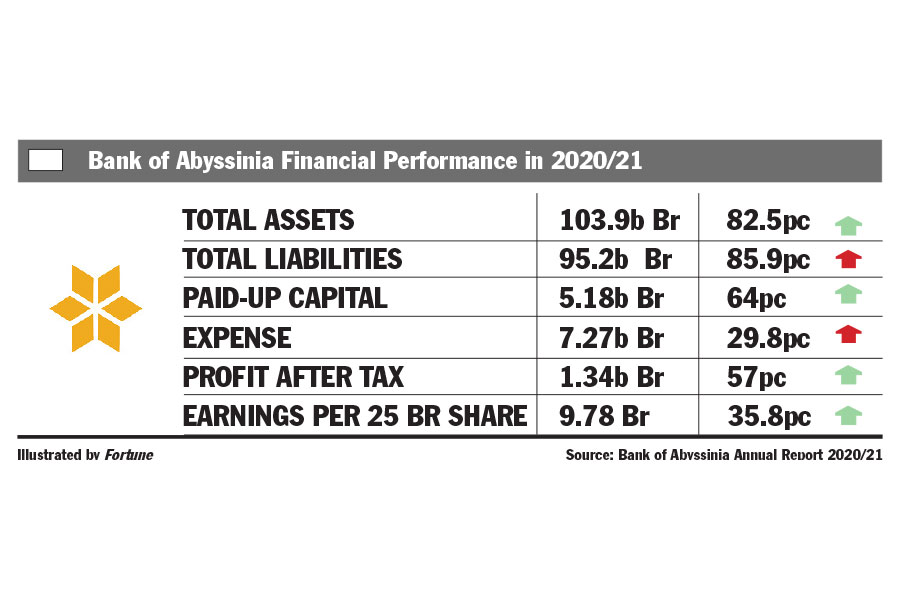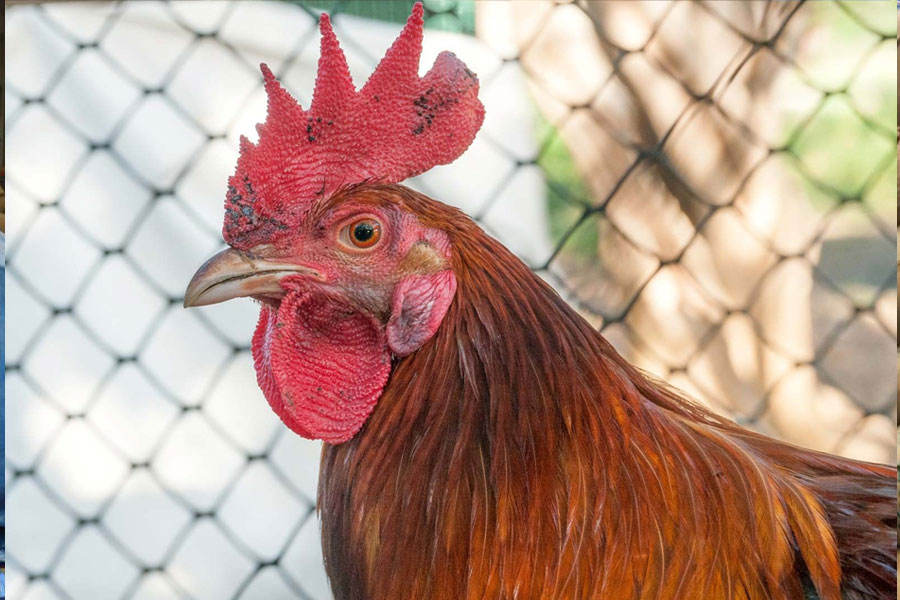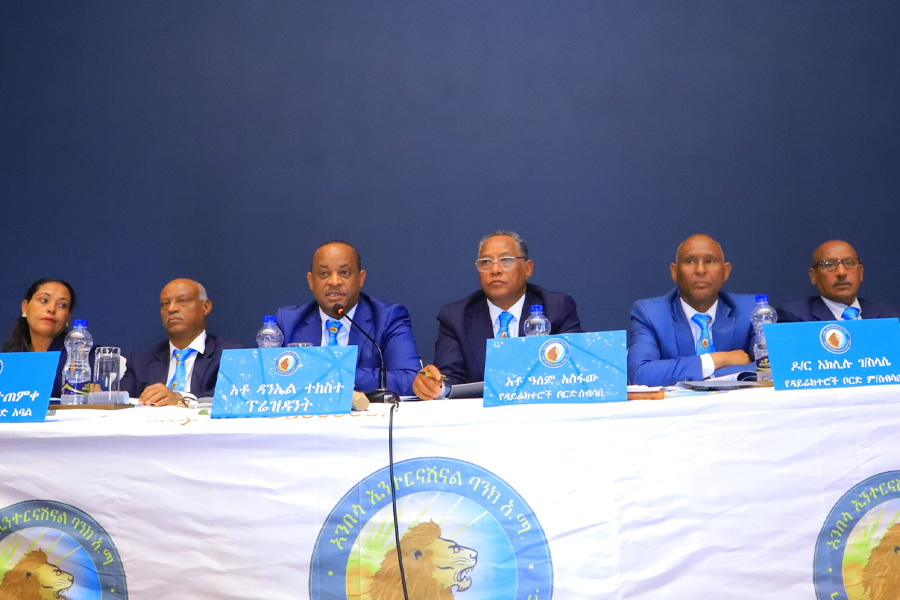
Fortune News | Jan 01,2022
As dawn broke over Addis Abeba last week, the city’s arteries pulsed not with the usual weekday urgency but with a slower and surer rhythm. A tide of people draped in black, red, and white shawls converged on a site near Mesqel Square with reverent precision. The capital bore witness once again to "Irreecha," an emblematic thanksgiving ritual, transforming its streets into rivers of colour, chant, and memory.
On Haile Gebresellasie Avenue, celebrants streamed past checkpoints, heading toward "Melka," a waterside site symbolising purity and continuity. Music, some pre-recorded, some live, spilt into the air, drawing strangers into spontaneous dance circles. Children played, lovers posed for portraits, and elders, staffs in hand, whispered prayers of gratitude to the Creator. Yet, under this outward jubilation ran a quiet thread of economic pragmatism.
From horse rides marketed at 100 Br, double the previous year's price, to the surge in lodging rates in districts like Qirkos, "Irreecha" became a case study in the informal economy’s seasonal boom. Mengesha Liqdi Chufa, 81, who made his first pilgrimage decades ago in Illubabor, Oromia Regional State, paid 900 Br for a modest room.
“It’s worth it,” he shrugged, content that municipal transport schemes spared him the gridlock of past years.
Others were less forgiving.
“Hotels offer no discounts,” admitted Feteh Weldesenbet, president of the Ethiopian Hotel & Tourism Employers’ Federation.
Inflationary pressures and loan repayment obligations, he argued, left hotel owners little choice but to raise tariffs. He urged policymakers to extend loan maturities to 25 years, an implicit call for financial sector reform, cloaked in hospitality-speak. Street-side, vendors like Halima Umer from Adama (Nazareth) saw the day differently. Draped in traditional regalia and holding her one-year-old, Halima peddled symbolic beadwork, necklaces, and bracelets steeped in cosmology, priced from 50 Br to 100 Br.
“It’s a blessing,” she said, “to be part of this, even just for a day.”
Such microtransactions built the day’s economy as much as the reverence did. Photographers offered keepsake shots for 30 Br to 50 Br, coaxing smiles from shy teenagers and extended families. Traditional outfits and adornments, often costly, were non-negotiable. Shure Gaamaada from Dodola, in Arsi Zone of the Oromia Regional State, estimated her ensemble had cost over 5,000 Br.
“Culture,” she said, “is worth every Birr.”
Even literature had its space. A vendor displayed a 600-page book, "Irreechaa Bir-qabaan" by Hailemichael Tadesse, tracing the spiritual and historical arcs of the festival. Readers lingered, flipping through pages that placed water, grass, and gratitude at the heart of Ireecha. The symbolism was omnipresent. Green grass and yellow "Adey" flowers lifted skyward, chanted of "Mere Ho!", echoing like collective prayers for peace and unity.
But alongside the spiritual renewal, institutional contradictions remained.
Tourism officials reported revenues of 4.8 billion Br over the past year, with an increase in arrivals from Asia and Eastern Europe. According to Teshome Teklu, head of Tourism Promotion, new venues now accommodate up to 25,000 guests, a sign of ambition. However, service delivery lagged. Overbooking, a dearth of trained guides, and price-gouging by intermediaries persisted, undermining the sector’s credibility.
As the sun began to fall, prayers rose from the banks of the Bantyketu River. Abba Gadaa leaders, spiritual stewards, raised their staffs and called upon the Creator for peace, reconciliation, and dignity. In a country torn apart by deadly conflicts, civil strife, and social fractures, their words carried weight far beyond the ceremonial into healing that is yet to come.
Back in the bustle, a teenager offered horse rides again, gesturing toward a glossy stallion. A potential rider hesitated at the 100 Br fee, then smiled and climbed aboard. The horse trotted forward, scattering rose petals that vendors tossed across the path. Somewhere behind them, a photographer lifted a camera. Click. Another moment sealed.
PUBLISHED ON
Oct 05,2025 [ VOL
26 , NO
1327]

Fortune News | Sep 10,2023

Featured | May 03,2024

Fortune News | Jun 29,2025

Radar | Dec 08,2024

Delicate Number | Apr 13, 2025

Dec 22 , 2024 . By TIZITA SHEWAFERAW
Charged with transforming colossal state-owned enterprises into modern and competitiv...

Aug 18 , 2024 . By AKSAH ITALO
Although predictable Yonas Zerihun's job in the ride-hailing service is not immune to...

Jul 28 , 2024 . By TIZITA SHEWAFERAW
Unhabitual, perhaps too many, Samuel Gebreyohannes, 38, used to occasionally enjoy a couple of beers at breakfast. However, he recently swit...

Jul 13 , 2024 . By AKSAH ITALO
Investors who rely on tractors, trucks, and field vehicles for commuting, transporting commodities, and f...

Oct 25 , 2025
The regulatory machinery is on overdrive. In only two years, no fewer than 35 new pro...

Oct 18 , 2025
The political establishment, notably the ruling party and its top brass, has become p...

Oct 11 , 2025
Ladislas Farago, a roving Associated Press (AP) correspondent, arrived in Ethiopia in...

Oct 4 , 2025
Eyob Tekalegn (PhD) had been in the Governor's chair for only weeks when, on Septembe...